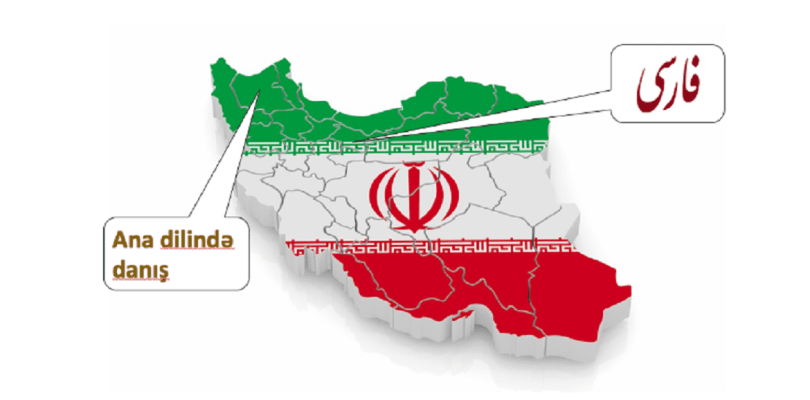The following fictional Red Cell scenario is intended to stimulate alternative thinking and challenge conventional wisdom, tying together events in operational fiction with national realities.
Iranians should have never given in to the rumors that there was any other language to use in Iran other than Farsi. Iranians, too, are subject to the manipulation of human frailty. After an isolated unofficial transgression in Iran’s Guardian Council, rumors spread throughout Iran’s Azerbaijan-speaking minority. Ironically, this “slip of the tongue” was orchestrated by Baku, Ankara, and Jerusalem.
After losing the Second Crimean War in 2023 to Russia, Turkey was nearly a failed state and reduced to observer status in NATO. Given the destruction of Turkey’s first nuclear power station at Akkuyu, radioactive contamination, and the civil strife between Islamists and nationalists in Turkey, Turkish and Azerbaijani nationalists in Ankara and Baku, respectively, attempted to create a political distraction by instilling Azerbaijani-speaking separatism in Iran. The goal was very ambitious.
Azerbaijan lost its military and diplomatic patron, Turkey. As a result, all Azerbaijani offensive forces retreated from their positions surrounding what remained of Nagorno-Karabakh after the Second Karabakh War in 2020. Armenians now had unfettered jurisdiction over the original Nagorno-Karabakh Autonomous Oblast from Soviet times, including areas to the north and west up to the Armenian border. The effect of the Turkish military exiting operational control over the Azerbaijani armed forces required Baku to reassert jurisdiction over its military structures. This effort was arduous as the Turks purged the best and brightest from the Azerbaijani military in 2020.
Israel expended decades of effort both courting Baku and positioning Turkey as a proxy against Iran’s political influence in Iraq, Syria, Lebanon, and Hamas in the Gaza Strip. The goal was to cripple Iran to such an extent it would be forced to abandon its nuclear ambitions. After all, if there is one state who knows what it takes to lie, cheat, and steal its way to nuclear capability, it would be Israel. Talis est mundus.
For over a decade, Iran had pressured Azerbaijan to close bases and other intelligence facilities used by Israel to spy on and engage in covert activity against Iran. Ironically, Iran and Azerbaijan enjoy a brisk trade turnover. Still, Baku now had to decide where its interests lay between regional harmony or participating in what remained of Turkey’s neo-Ottoman adventure and succumbing to the demands of Israel. However, all three states gave one last push to radicalize the Azerbaijani-speaking population in Iran, encouraging Iran to disintegrate along ethnic lines. The fallout between warring Iranian ethnic minorities would destroy the country, with each fighting over resources and power.
Articles and videos began appearing on the internet, orchestrated by the same standard-issue agents who once wrote pro-Azerbaijani propaganda preceding the 2020 Second Karabakh War. This media effort heavily implied a second official language in Iran. While the propaganda effort targeted all of Iran’s geo-ethnic minorities, this operation concentrated on ethnic Azerbaijani speakers along the Turkish-Armenian-Azerbaijani border, mainly in the Iranian provinces of East Azerbaijan and Ardabil.
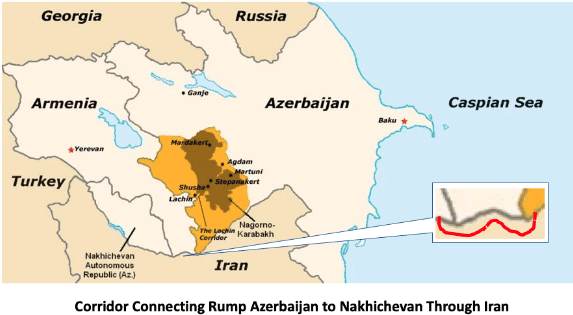
The corridor construction, through Iran, between rump Azerbaijan and its exclave of Nakhichevan, started in late 2022, allowed the infiltration into this vast construction project of former Azerbaijani Jews who emigrated to Israel decades earlier. Many of these “workers” made their way to Tabriz and other major cities in the Azerbaijani-speaking provinces of Iran. They coordinated their activities with a select few of the many thousands-strong Iranian Jews who thrive mainly in Tehran. The immediate goal was to instill in Iran’s ethnic Azerbaijanis the most basic of human unifiers – language. In the early years of Israel’s formation, with Jews immigrating to Israel from very diverse cultures, compulsory army service was used to teach these new arrivals modern Hebrew and forge them into Israeli Jews. Some of the socialization learned in this process was extrapolated and used for this operation in Iran. Although spoken on Tehran’s streets, due to the lack of Azerbaijani language schools, Iranian Azerbaijani is not very sophisticated and looked down upon relative to Farsi. The quiet calls in Azerbaijani, “Ana dilində danış” (Speak your mother tongue), were rather strange as they were confused with Iran’s mother tongue, Farsi. The latter was part of the plan, planting seeds of confusion. In 2018, an ultra-bold heist of Iran’s nuclear document archive reportedly included an escape route through Azerbaijan. In contrast with this heist, starting a covert language campaign seemed like child’s play. Interestingly, the word on the street was that this archive was deliberately set up by the Iranian Revolutionary Guard (IRG) to facilitate a theft in planning, considering the archive added little to what was either known or suspected about Iran’s nuclear program.
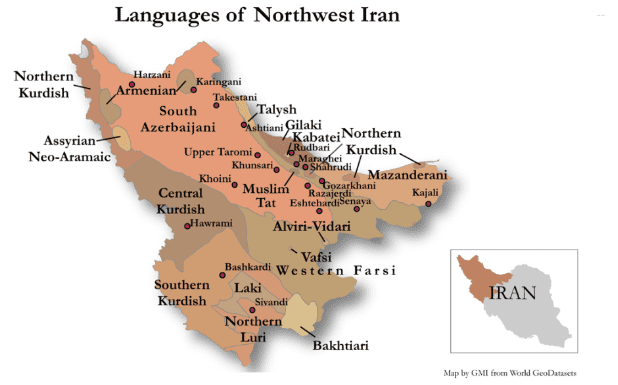
It started in the Guardian Council, the most influential governmental body in The Islamic Republic of Iran. It approves or vetoes legislation passed by parliament, candidates for parliament, the presidency, and members of another body known as the Assembly of Experts. Five of the Council’s twelve members are either Azerbaijani, part Azerbaijani, or can speak some Azerbaijani. One might have thought that issues such as Iran’s nuclear weapons program, AMAD, or the ongoing tit-for-tat Israeli assassination of high-ranking IRG officers and Iran targeting US/Israeli installations in Iraq and Syria were much more significant than those associated with what language one speaks – but apparently not. During Guardian Council deliberations, Farsi is spoken, but Azerbaijani was “reportedly heard” mixed with Farsi during breaks. It was never known if Azerbaijani was ever really spoken by Council members. Illusion sometimes forges reality.
Six new Guardian Council members were selected in 2022 by Iran’s Supreme Leader, Sayyid Ali Hosseini Khamenei. Knowing that much of Iranian society is permeated by skepticism, suspicion, and 24/7 rumors, the external forces manipulating this “language operation” used these factors in their plans. This operation could fizzle out, exacerbate ethnic division, or fail in some chaotic way. Being Turkey’s last chance at returning to national solvency with a massive neo-Ottoman success, Israel’s hoping for anything it took for Iran to abandon its nuclear weapons (and strategic weapons in general) program, and Azerbaijan’s dream of a Greater Azerbaijan, it was worth taking this chance as anything negatively affecting Iran was considered good enough.
In Iran, one must be extremely careful not to give even the faintest appearance of not supporting the theological basis of the state or, worse, lessening its sovereignty. What appeared as a threat to Iran from Azerbaijan in 2021 resulted in the most significant military buildup within Iran’s borders since the Iran-Iraq war of the 1980s. The IRC had zero tolerance for pro-Azerbaijani separatism in Tabriz, the center of Iranian Azerbaijan. Traditionally, Tabriz has been one of Iran’s centers of political activity. The organizers of this language operation knew that the cold weather in Tabriz kept many people inside, where they would talk, debate, and otherwise organize themselves. It was already January, and the word on the street was that Azerbaijani might be considered at least an unofficial second language in Iran. Some thought such a second language was impossible, but many remember the overthrow of the Shah in 1978-1979 as being impossible.
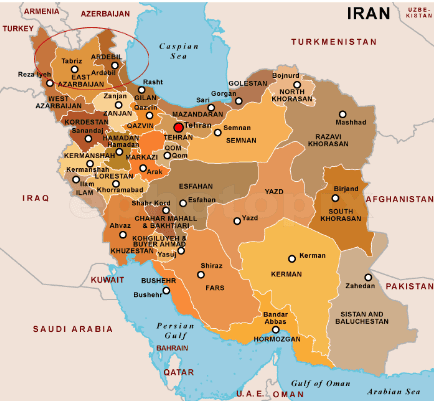
Russia, still wary of Turkey’s nationalist ambitions even in the wake of the “apparent” death of Turkey’s President Erdogan, knew of this Turkish-Israeli-Azerbaijani plan for the disintegration of Iran. Knowing the chances of this operation resulting in the dismemberment of Iran were remote, Putin was not going to stand by and hope for the best. The Russian Foreign Intelligence Service (SVR) already had its Azerbaijani-speaking agents in Tabriz. Iran had its agents in Azerbaijan and Turkey. The latter continued an earlier program to co-opt Turkey’s Shia and Alevi minorities. Iran’s Foreign Minister Amir-Abdollahian visited Putin in an undisclosed location in the region and brought with him captured documents with extensive plans made in Baku for the absorption of northwestern Iran as part of a transitional entity, not unlike the fake Republic of Hatay (in the far northwest of French-Mandate Syria) in 1938 eventually “given” to Turkey by the French in 1939.
It didn’t take long for all Iranian government members to refrain from using any words in Azerbaijani. It also didn’t take long for the IRG to come down hard on ethnic Azerbaijani unrest in Tabriz and Ardabil. The arrest of scores of agents from Azerbaijan and Turkey continued in provincial cities and towns across most of northwest Iran. By this time, most Israeli agents involved had fled Iran.
In intrinsically polarized societies, the proliferation of rumors increases the chances that the sides will develop the worst images of one another, resulting in dehumanization and violence. Across northwest Iran, street fights, mixed-marriage violence, workplace fights, and neighborhood brawls were commonplace. The “Language Operation” took on chaotic dimensions, and the Iranian government crackdown was harsh.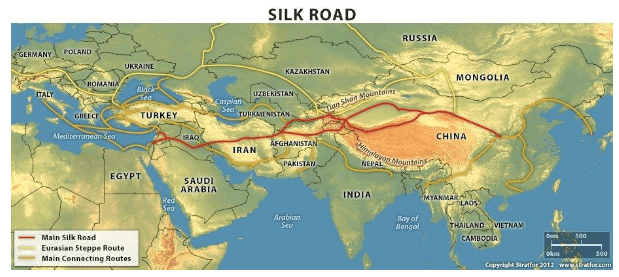
The potential disruption in interests between Iran and Russia forced Putin, with the support of China (having invested heavily across northern Iran’s Silk Road), to take action against Azerbaijan and, to a lesser extent, Israel. Turkey was a basket case, anyway. The worst measures that could be taken against Azerbaijan were both economic and national. Long before Turkey abandoned both northern Syria and Azerbaijan, the new Armenian government had easily re-captured regions connecting Armenia with Nagorno-Karabakh, given in capitulation to Azerbaijan in the 2020 Second Karabakh War. In a token face-saving measure to Azerbaijan, Russian peacekeeping forces separating Nagorno-Karabakh from the ethnic-cleaning policies of Baku were disbanded but left their vast military bases to Armenian control. Further, with Armenian’s new proactive diplomatic team, an extensive diplomatic campaign began legitimizing the annexation of Armenian-inhabited Nagorno-Karabakh plus the connecting regions.
The Baku-Novorossiysk hydrocarbon pipeline was shut down, on the Russian side, for an unknown time due to “maintenance,” depriving Baku of revenue. This closure coincided with the massive destruction across several kilometers of the Baku-Tbilisi-Ceyhan (BTC) pipeline in Georgia near the Davit Garaji Monastery. Multiple compressor and service facilities across Georgia were also destroyed. Although never proven, rumors claimed that Armenian saboteurs destroyed the BTC pipeline across Georgia due to the extra destruction near the Armenian-populated Georgian region of Javakhk. Since Azerbaijan supplied about half of the Israeli crude oil requirement, Russian oil companies jumped in to make up for this shortfall at a discount price, paid in rubles or yuans. The UK was outraged at the destruction since British Petroleum is the largest investor in BTC. In response, Putin directly referenced British covert operations in Ukraine in 2022. Georgia was forced to temporarily re-open its natural gas lines from Russia and import LNG.
The anti-Azerbaijani sentiment was so high in Iran that not only was the Azerbaijani diplomatic mission expelled, but Azerbaijani was not spoken anywhere in Iran. Speaking Azerbaijani was equivalent to being anti-regime. Iranians threw Turkish products in the streets. Iran transformed the “Language Operation” into a political movement that forbade any public expression of Azerbaijani or Turkish culture. Israel shut down its intelligence operation in Azerbaijan, such as those at Sitalchay airbase on the Caspian Sea and facilities at Azerbaijan’s Fizuli airport, as part of Israel’s oil deal with Russia.
Yerevan, Armenia
Author: David Davidian (Lecturer at the American University of Armenia. He has spent over a decade in technical intelligence analysis at major high technology firms. He resides in Yerevan, Armenia).

